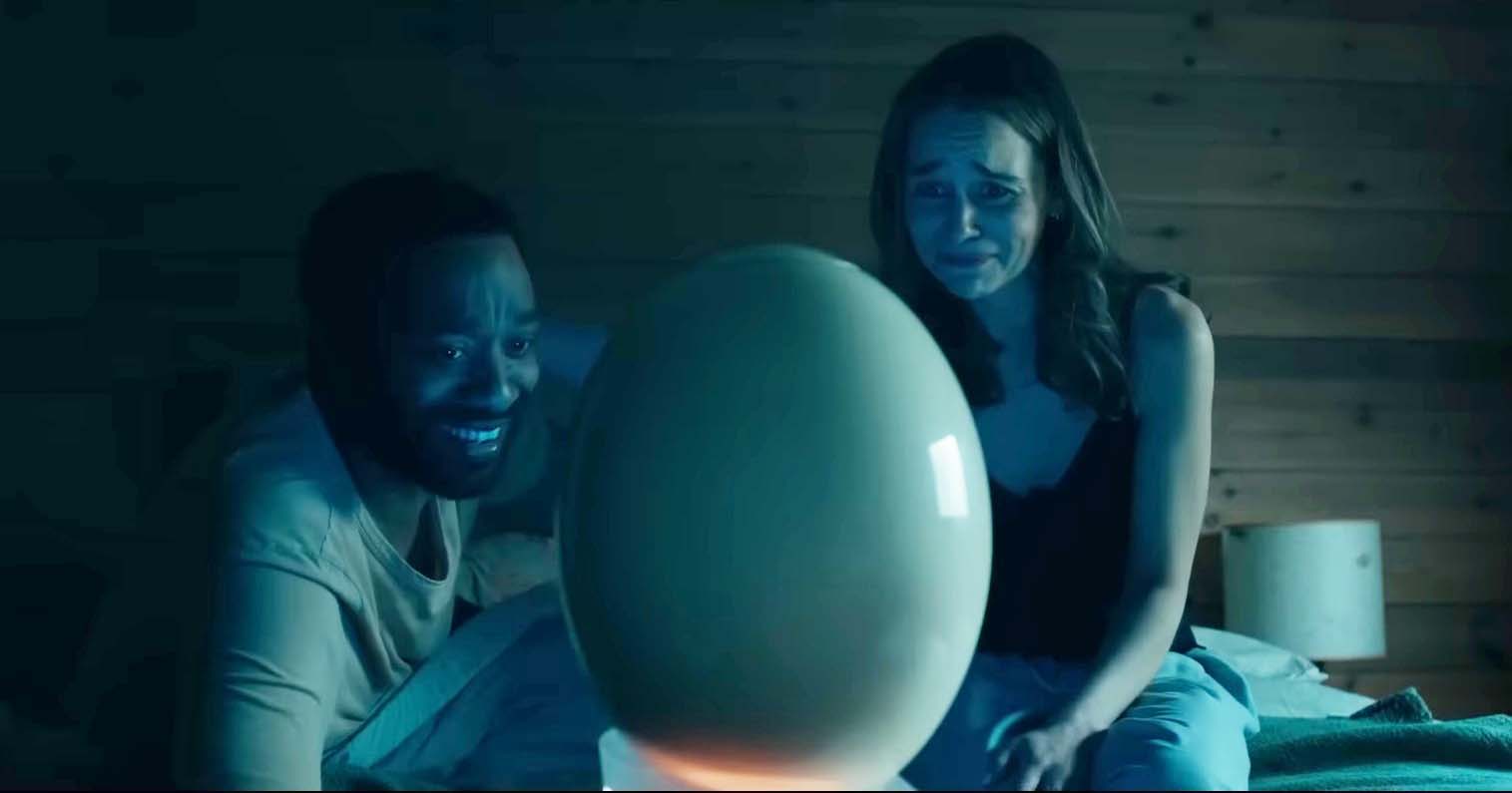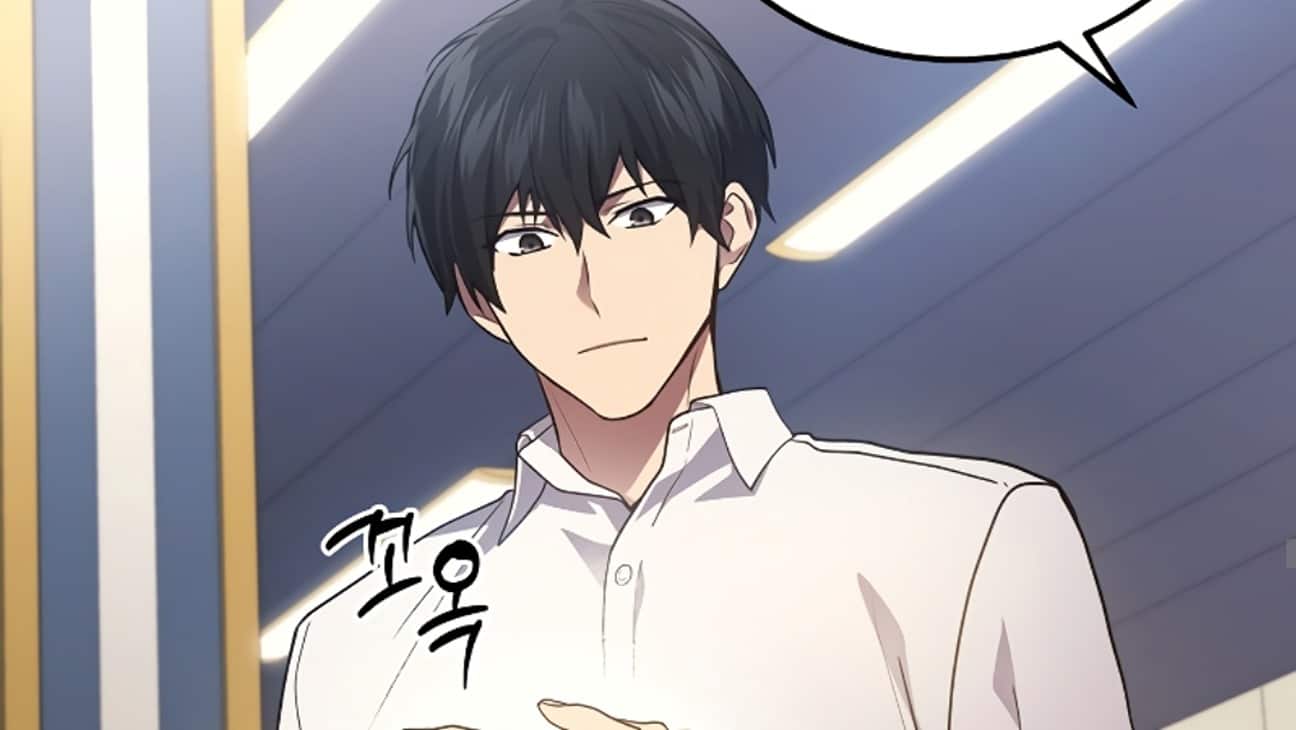What happened at the end of The Pod Generation? The Pod Generation is an interesting one that stars Amelia Clark and Chiwetel Ejiofor as a couple. You have Emelia Clark, who is a businesswoman. She works for some sort of tech company, and she’s very prolific in that world. She’s very intelligent, she’s knowledgeable in that world, and she’s looked at highly by her peers.
On the other hand, Chiwetel’s character, the husband, is a botanist. And in this world that we’re in, in The Pod Generation, we’re in the 22nd century, and pretty much anything that has to do with nature has been completely thrown to the wayside. But for me, I do think that it had a lot of really valid commentary on where society is going moving forward. I thought the performances were solid.
Here is The Pod Generation Ending Explained:
The Pod Generation Plot
We live in a world where technology completely engulfs us, which is not entirely different from where we currently are. In many ways, this is a cautionary tale of the future. Showing us a future where we have humans entirely reliant on everything technological and AI.
Whether it be down to them making our food or letting us know what the different chemical levels are in our body, like serotonin and dopamine. Sometimes even suggest that we do something like a nature pod to get a little bit of time with fake nature to make us feel a little bit better. It’s a world where you have hologram trees and is a world where, at this point, they’ve decided to kind of move away from anything natural.
That leads us to the main thing that this film is about, where you have Amelia Clark’s character wanting to have a child, but her husband, who’s a botanist and is in love with the world of nature and love with plants, wants to have a normal pregnancy.
But she wants to do something that people do in this world, which is have a pod child, have a child in a pod that essentially looks like a little egg where you have the kid incubated within it. And yeah, you end up having a baby one day, and you have to take care of this egg.
For the most part, this is a really solid watch with an interesting story that kept me engaged throughout with really engaging performances. I found this to be an impactful watch. I do think that this is something that’s going to rub some people the wrong way.
While I found it a little bit slow at times, and I found that certain things were kind of on the nose in terms of how they depicted it, for the most part, I think it’s a solid watch that you guys should check out.
The Pod Generation Ending Explained
The Pod Generation appears to go through small shifts in tone near the film’s end, while it originally appears to be a sci-fi thriller. This is due to Rachel and Alvy’s growing skepticism of the Womb Center corporation. The company has revised its agreement terms because of the increased number of couples interested in using its service.
As a result, they now want to have the babies in 39 weeks and unload the pods to ensure they can be utilized for the next pair. Rachel and Alvy get concerned about this, believing that it could harm their baby, and decide to take the pod and give delivery alone.
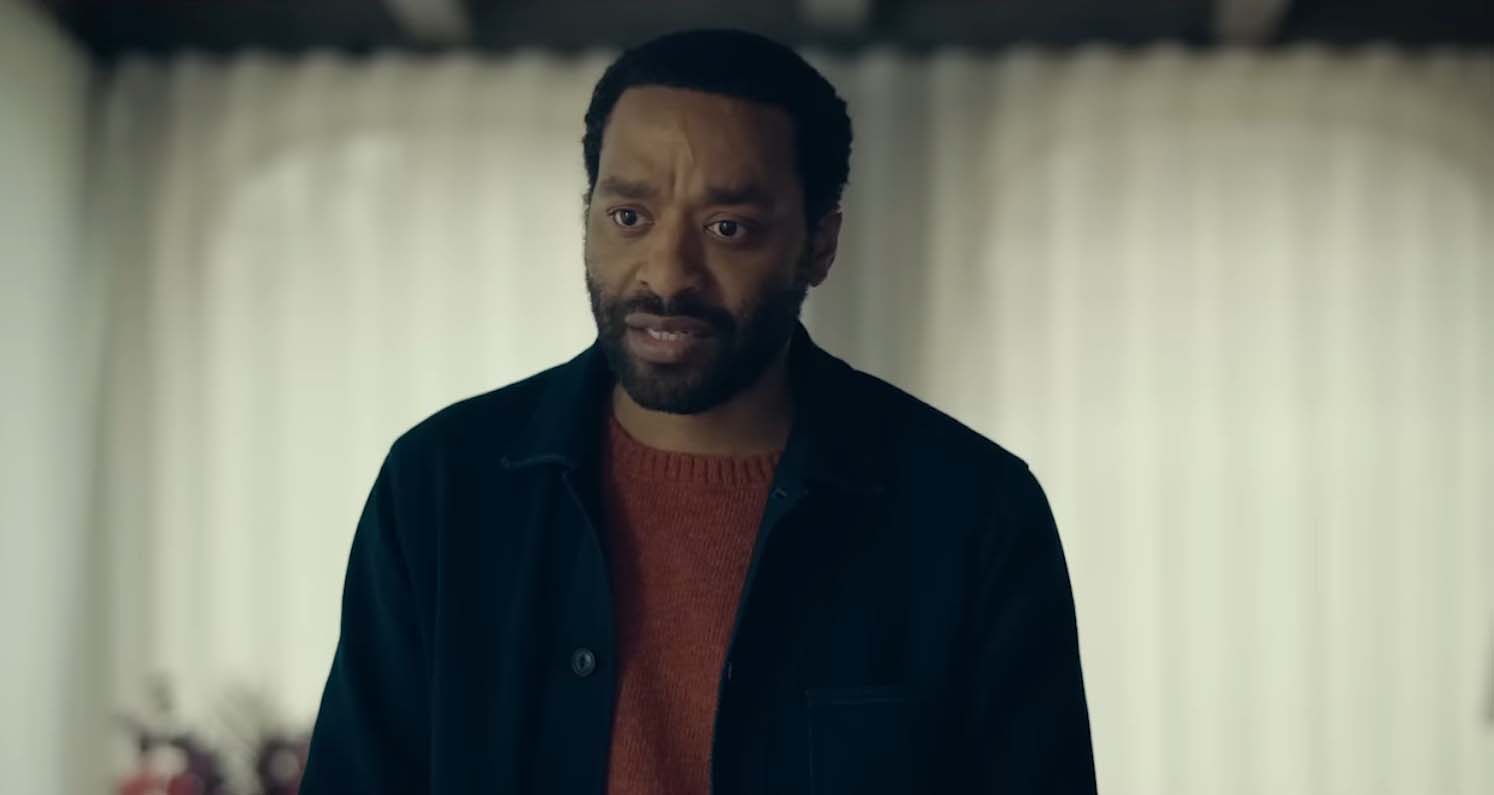
When the Womb Center official rejects this proposal, Alvy snatches the pod and takes it back to their residence. Knowing that the corporation would come looking for their pod, the couple decides to leave their New York home and relocate to the Shell Island property, which lacks any current AI equipment.
When the moment arrives for the baby to be born, the couple learns that the Womb Center has directly turned off support, putting the baby inside it in danger. However, the fact that the baby is about to be born saves the day. Finally, Alvy carefully rips open the pod and extracts the baby, giving delivery like a doctor. The Pod Generation ends on a dramatic note and eventually portrays the tale of two devoted parents in the evolving AI-driven times.
Alvy and Rachel make the decision to bring up their child on Shell Island, far away from their hectic lives and technology. Rachel also packs the damaged artificial pod and returns it, supposedly back to the Womb Center corporation, because it is no longer useful.
The film also includes a mid-credits sequence during which the CEO of Pegazus is shown in a TV interview, making odd statements about the company’s future plans to allow babies to pick their parents. The idea not only sounds gimmicky, but it is also very dangerous, as Pegazus may choose to implant AI more effectively on human embryos as a way to accelerate their evolution.
Detached From Humanity
At its core, this movie is about the disconnection that we, as humanity, have had as the world consistently progresses. It’s an interesting kind of idea that this movie tackles, the idea of progress always being kind of looked at as a good thing versus recognizing a lot of times that some of these advancements have created more avenues for people to disconnect from real life and disconnect socially from people all around them.
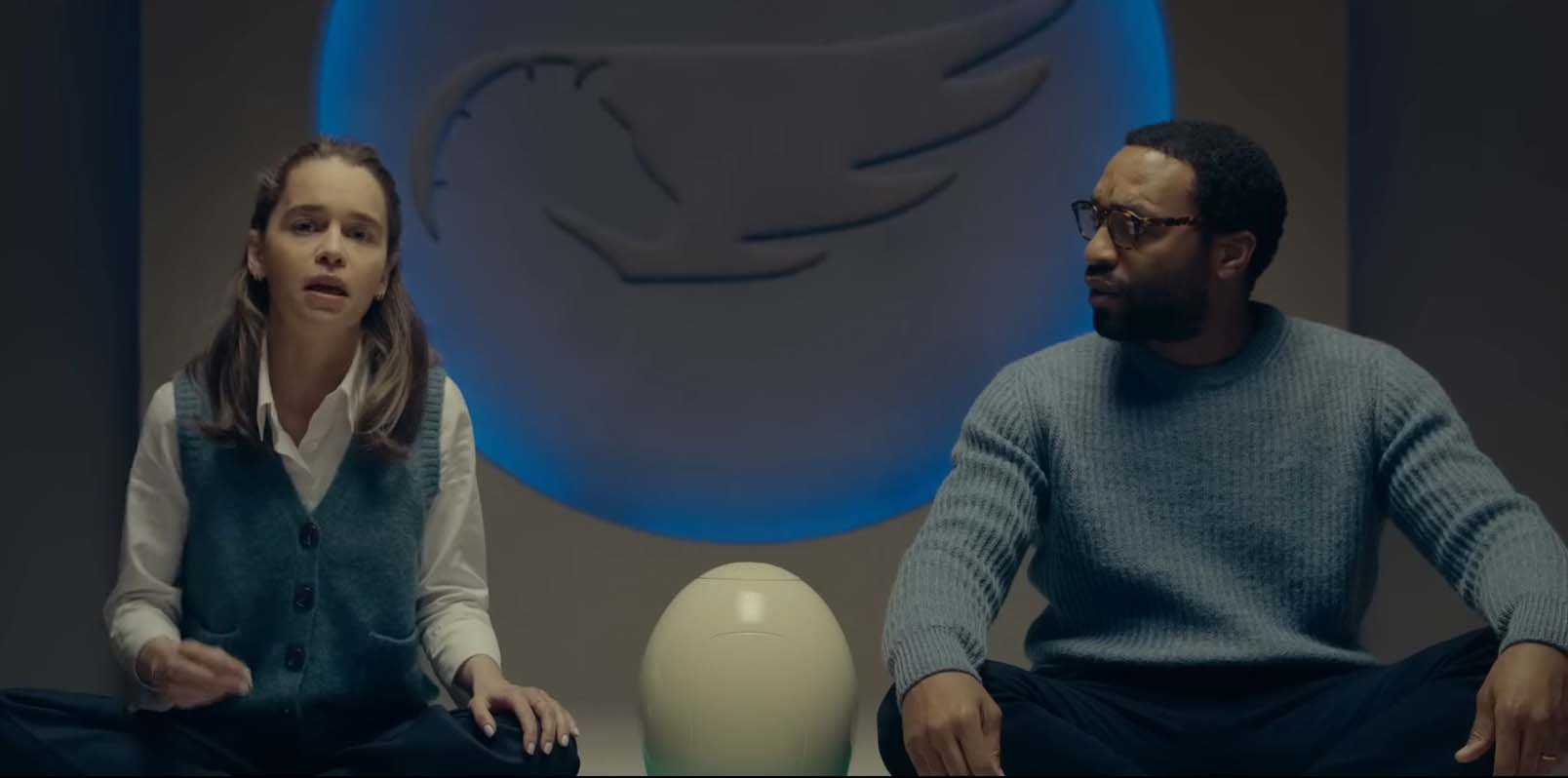
That’s something we see in the world today. In the last few years, I have found myself increasingly itching to exercise, go out, be in the sunlight, and spend more time outside. And a lot of times, I don’t.
I get caught up in work, I get caught up in watching movies, I get caught up in playing video games, I get caught up swiping on my phone, and when I do go and do those things, I feel substantially better.
When I was younger, I had a nice balance of being able to go outside and have a good time because I grew up in the late ’90s in the early 2000s. And while there was a lot of technology, and I’d come inside and play video games and stuff, it wasn’t where it is today.
I feel like we’re just now in this time where we just mindlessly scroll. This film just really tackles the progression of that same idea. Now, of course, this is a sci-fi film that gives us a bit of a cautionary tale future, but more than anything. It showcases the idea of us moving away from nature and from the natural for the artificial.
Whether it be artificial intelligence for just living our lives, making food, or even art, we see that that is a current thing here in this current world. This film has a lot of really interesting commentary on that.
Attached To Technology
There are some moments about the course of the film that I think may rub some people the wrong way as it is, touching on some modern-day politics and things that are going on, some current events. I mentioned AI as one of them.
You do have a lot of things going on here where you have a moment where you have Kids actually in an art class that is just them watching the computer create art, and then they’re giving it feedback versus them actually doing the art themselves and the kids are just sitting there looking bored and mindless.
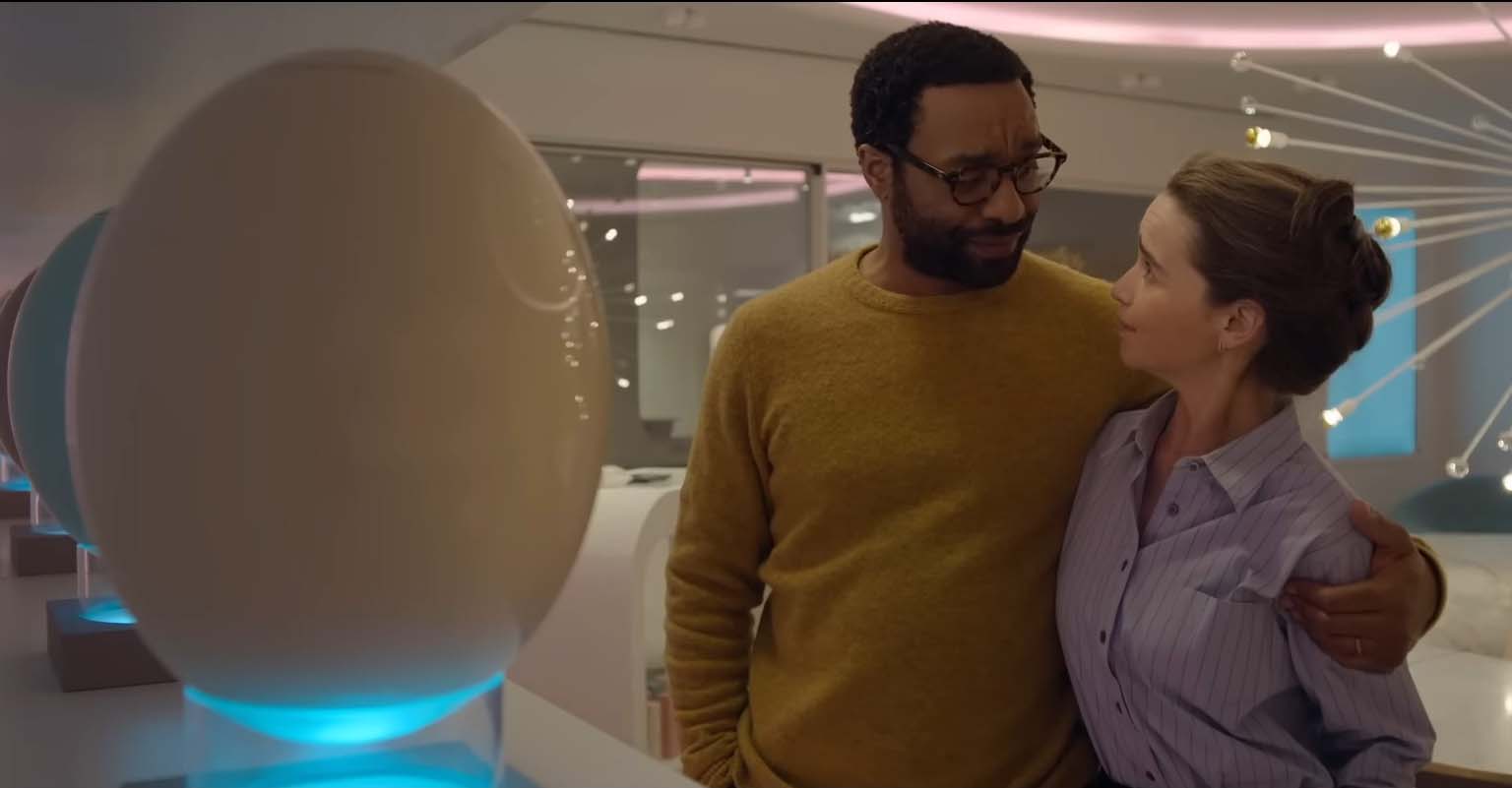
You also have a lot of commentary because this whole movie is about these two people having an artificial child. You have this whole movie that’s focused on motherhood and the control of women’s reproductive systems.
It’s an interesting thing because even the women who are in this world who can’t afford to get one of these pod children, who have to do it the natural way, you have them looking to the people who get to do it via this womb center, this artificial way of building the child, you have those people kind of envying the people who can have the pod.
But then, on the flip side, and this film, Amelia Clark’s character, who wanted to have the Pod Child, is now with this pod child and comes across pregnant women and starts to wonder if she made the wrong choice.
Also Read: The Truman Show Ending Explained: The Dark Hidden Meaning Behind The Movie

